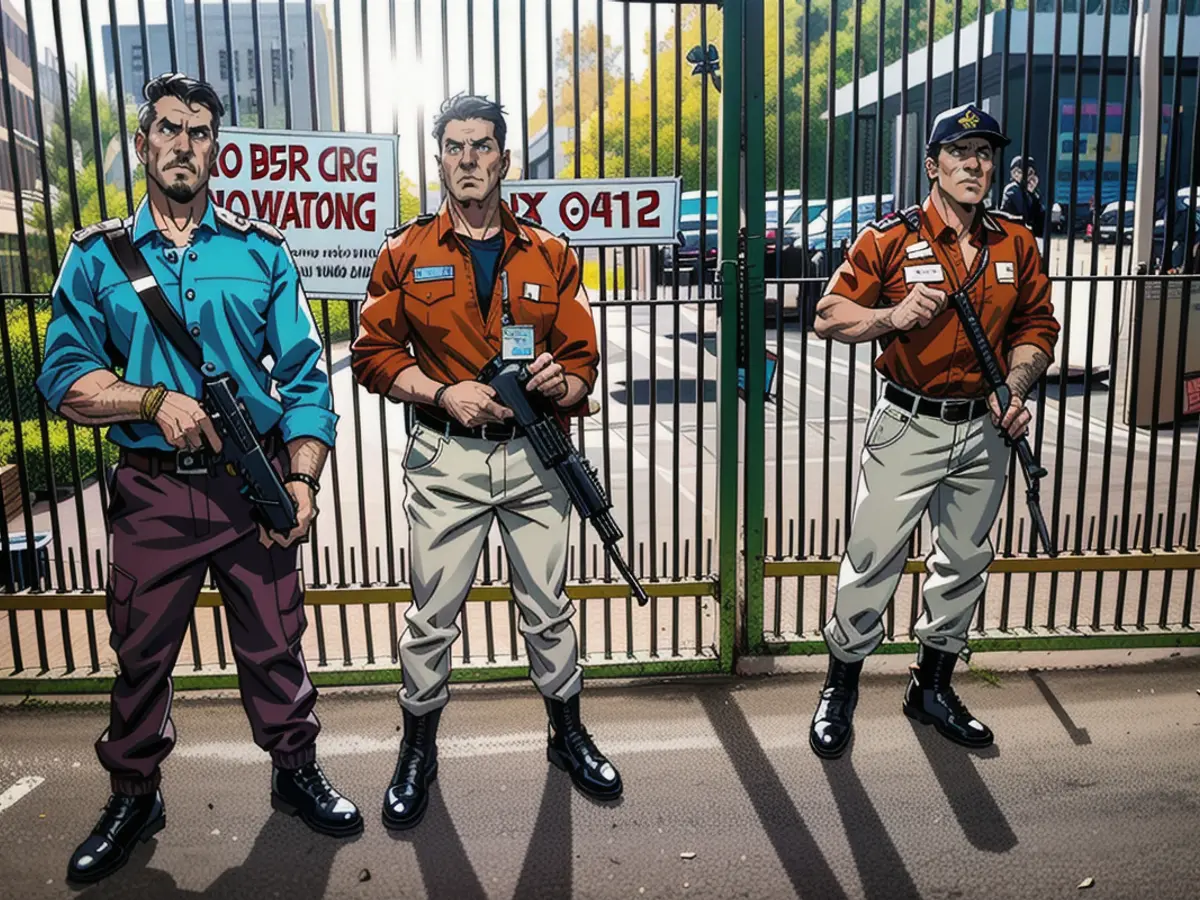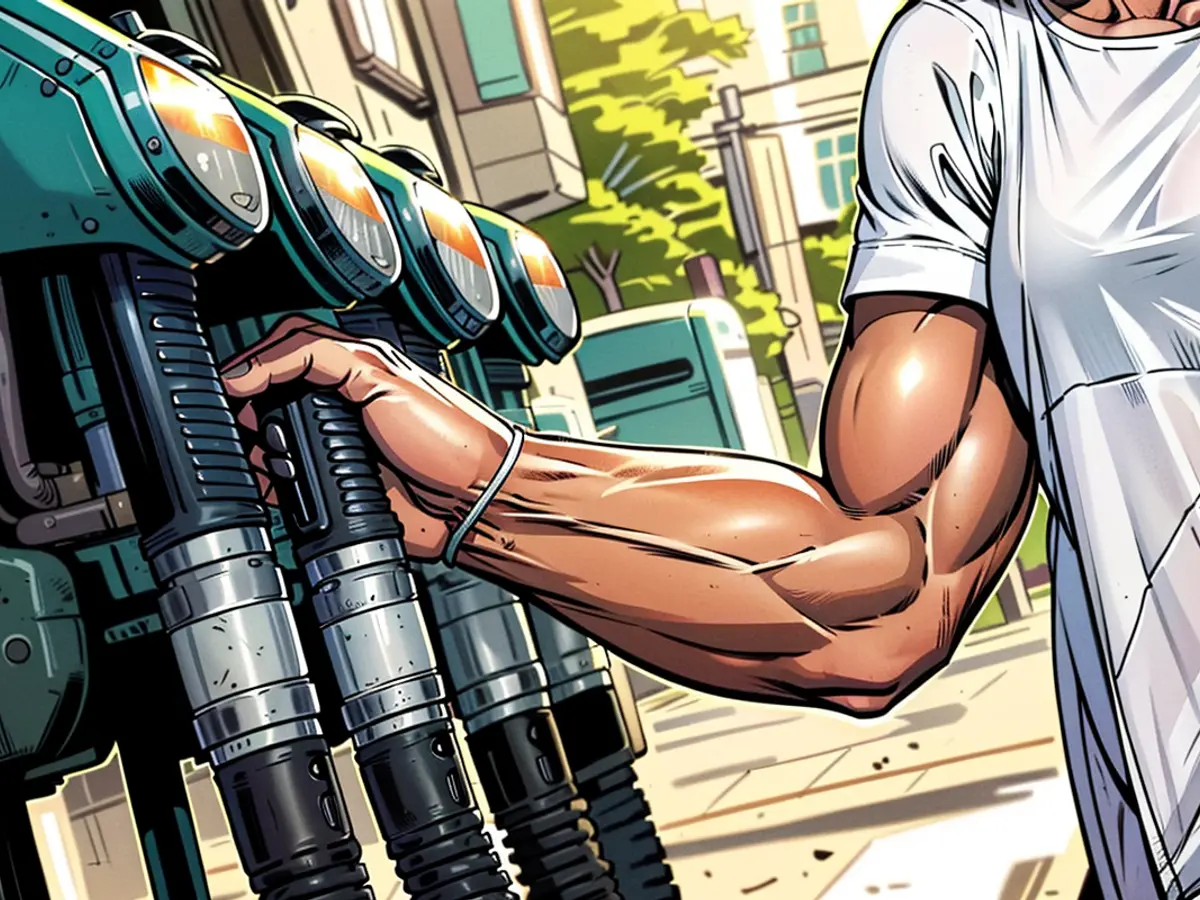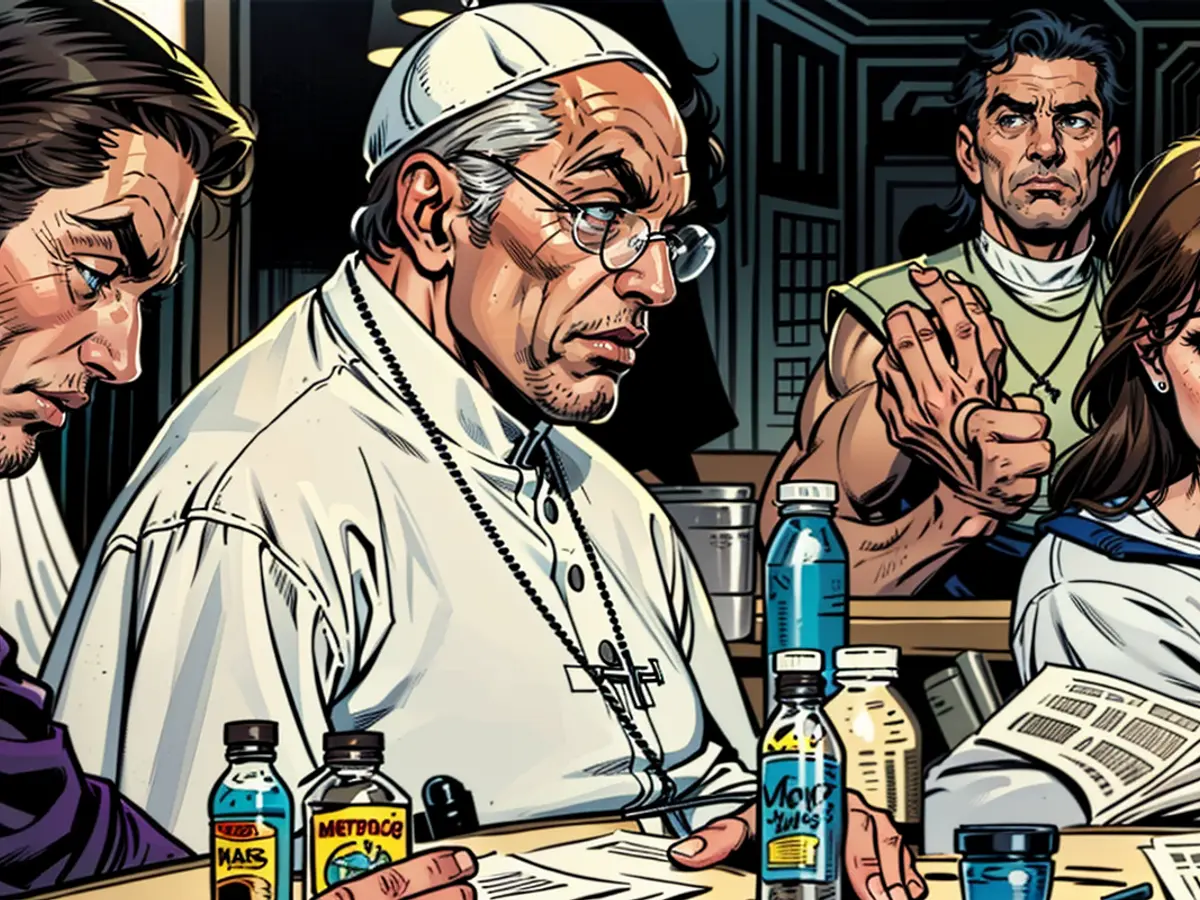Has India's free press lost its independence after ten years of Modi's rule?
The last time he pursued a major story, a horrific rape and murder case, it landed a 44-year-old father of three behind bars for more than two years and caused significant damage to his career and finances. He believes his imprisonment is a manifestation of the worsening conditions for journalists in India, where arrests and harassment are becoming increasingly common.
Many other journalists are feeling the squeeze during Prime Minister Narendra Modi's decade-long reign. Modi's government, which hasn't held a single solo press conference while in power, is accused of stifling journalistic diversity and escalating the use of anti-terror legislation against reporters.
As Modi vies for another five years in office during the ongoing nationwide elections, critics are concerned about further erosion of India's free press.
"I often think twice before writing a story," Kappan informed CNN. "Anytime, anyplace, anyone can get me charged."
In October 2020, Kappan, who was then freelancing for a Malayalam-language news website, was en route to Hathras district, in northern Uttar Pradesh state, to cover the alleged gang rape and murder of a Dalit teenager by upper-class individuals. The caste system may have been abolished long ago, but the social hierarchy defined by birth still exists in several aspects of life, with Dalits at the bottom.
Prior to arriving at the scene, he was taken into custody by the police, who accused him of being part of a plot to disrupt peace in the area. He maintained that his arrest was an effort to suppress coverage of the incident.
Kappan spent 28 months in prison before the Supreme Court granted him bail in February 2023, but his legal case is still ongoing. The Uttar Pradesh government, led by Modi's Bharatiya Janata Party (BJP), had argued against bail in the Supreme Court, alleging that Kappan had been "crafting articles designed to inflame religious tensions" and was connected to a wider conspiracy to "instigate religious strife and foment terror in the country."
CNN contacted the BJP at multiple levels for comment on the case.
Since his release on bail, Kappan has struggled to secure a stable job to support his family. "The primary reason is the fear of newspaper executives and the media, which relies on government advertising, who don't want to displease the government," he said.
He now predominantly focuses on safe, non-controversial stories that won't upset anyone.
The treatment of journalists like Kappan has instilled fear in many other reporters.
"There was nothing Kappan could have done to prevent his arrest, other than not covering the story at all," said Kaushik Raj, who contributes to numerous publications and authors about hate crimes. "This was chilling for me."
India is one of the world's largest media markets, boasting over 20,000 daily newspapers and over 450 news channels, according to the Paris-based organization Reporters Without Borders (RSF).
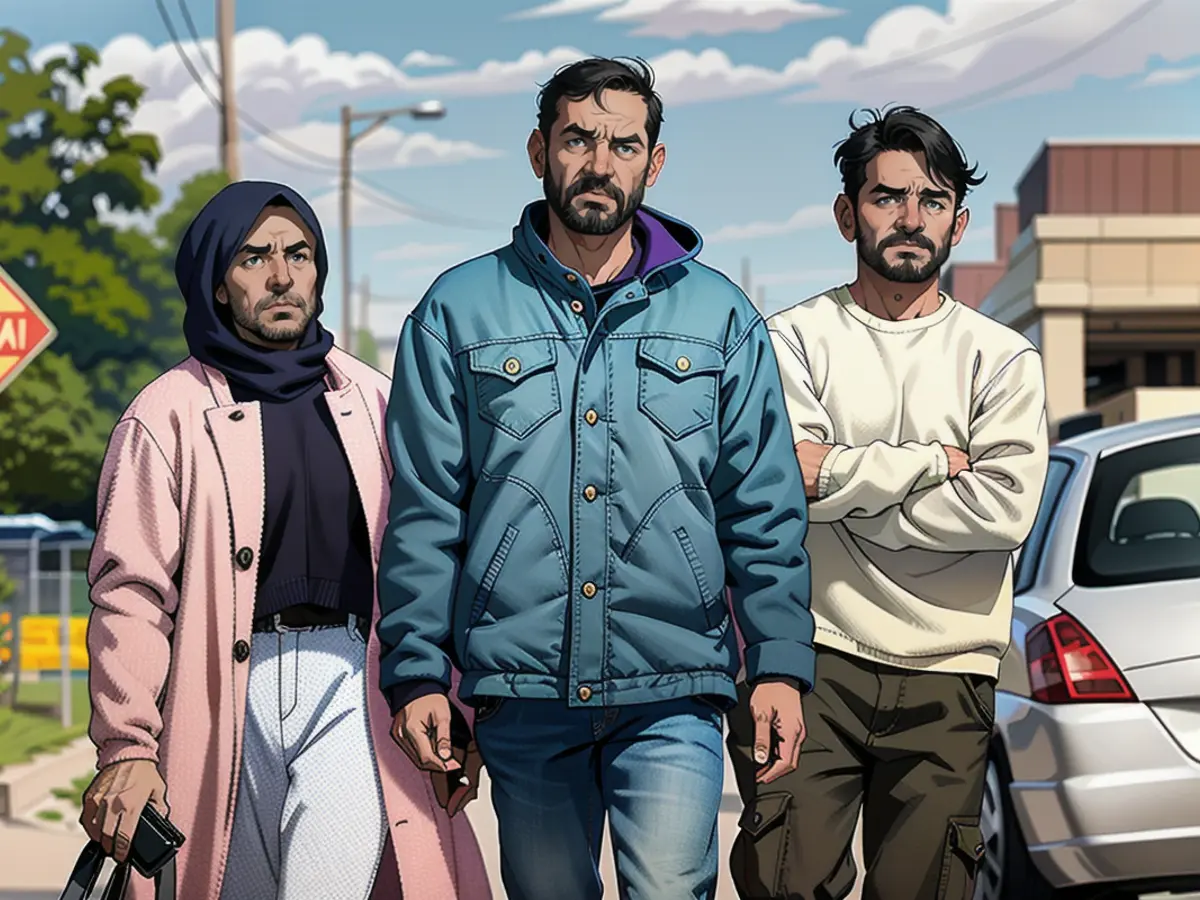
Despite its large size and diversity, critics claim the media industry is becoming increasingly submissive to Modi's administration.
"There was a balance of public service, public interest, and private corporate media serving a burgeoning urban middle class while also showing an interest in rural development," said Shakuntala Banaji, a media, culture, and social change professor at the London School of Economics. "Journalists were respected... Regulatory mechanisms were weak but not completely absent."
"But they've virtually been annihilated in the last 10 years," she added.
India ranks 159th on the Press Freedom Index for this year, up from 161st place the previous year, but still lower than all its neighbors except Bangladesh (165th).
"There has been a significant decline in the status of the media over the past ten years," Committee to Protect Journalists (CPJ) India representative Kunal Majumder told CNN, pointing to the detention of journalists and the use of anti-terror laws to criminalize them.
The CPJ reports that 21 journalists were imprisoned in India between 2014 and 2023, up from four between 2004 and 2013. Moreover, the use of anti-terror laws has increased substantially against reporters.
According to the CPJ, the number of imprisoned journalists in India rose from four between 2004 and 2013 to 21 between 2014 and 2023. Additionally, the use of anti-terror laws against journalists has increased significantly.
"It's a very dangerous time for reporters in India," stressed Majumder. "State interrogation tactics are increasingly aggressive, to obtain confession, and to defame them. Journalists are being asked to sign undertakings saying they will not report on certain people and events."
Authorities have employed the same anti-terror regulation against a website associated with a progressive group that is critical of the government. In recent court documents obtained by CNN, police assert that NewsClick was responsible for inciting the riots that happened in New Delhi in 2020, disseminating false information about Covid, and funding terrorist organizations. The website responded by calling these allegations preposterous and groundless, stating that they were meant to "target independent journalism." Its editor, Prabir Purkayastha, was imprisoned from October 3 until Wednesday, when the Supreme Court ordered his release, declaring his arrest and detention "null and void under the law."
Prof. Banaji from LSE remarked, "When the government employs anti-terror laws to stifle the freedom of expression of journalists who hold authorities accountable, we're in the depths of authoritarianism."
Kanchan Gupta, a senior advisor to the Ministry of Information and Broadcasting, shared CNN's query about this escalating animosity towards journalists. He said that journalists are not above the law.
"If journalists break the law, they are vulnerable to legal action," he said.
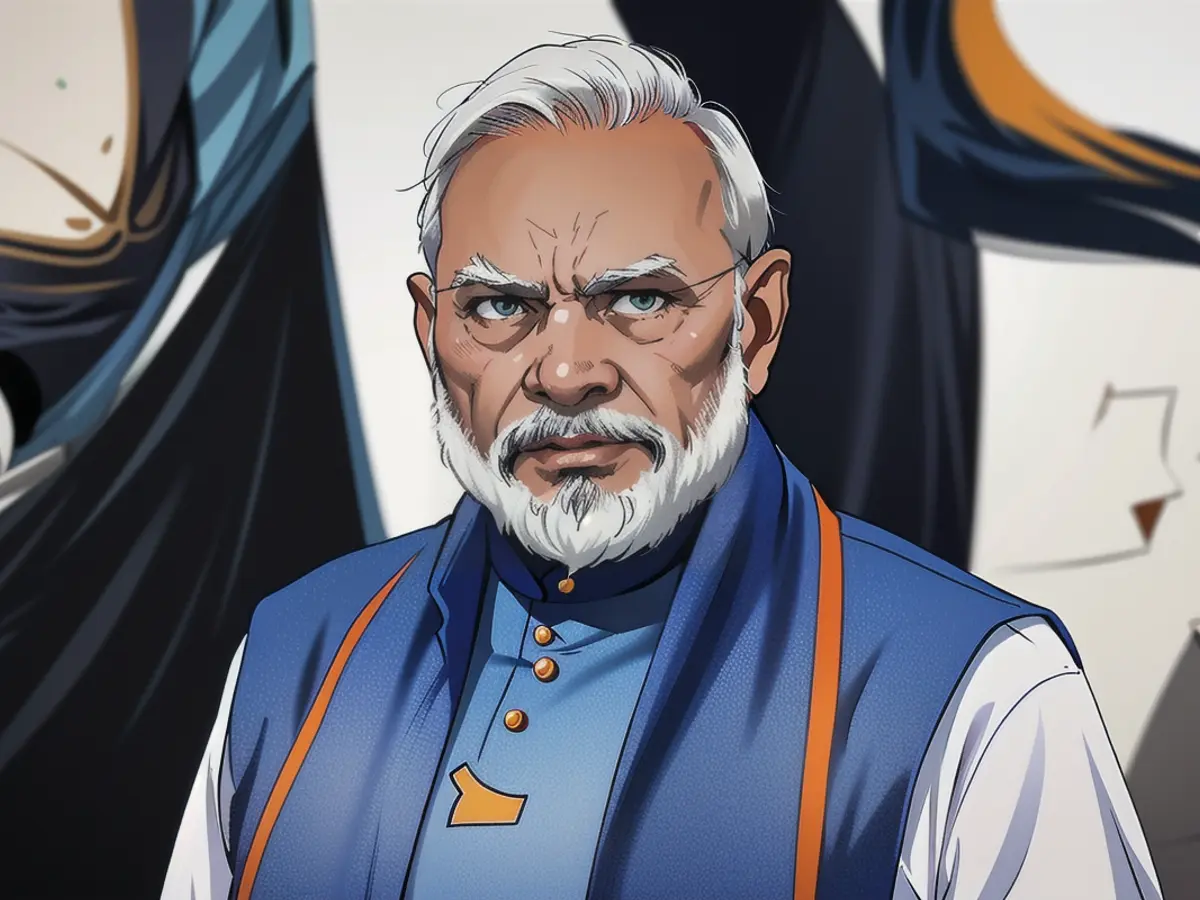
Weakening independent media
Reporters have reported an increase in harassment, according to press freedom organizations. The Amnesty report from 2022 suggests that Hindu extremists feel empowered to threaten and abuse journalists critical of the administration.
In the words of Ravish Kumar, a leading journalist, he has endured death threats and abuse from Hindu nationalists for years.
The renowned face of New Delhi Television (NDTV) for two decades, Kumar said he chose to resign when he was informed that he needed to support the government's stance. He disclosed that his decision to resign was sparked by a hostile takeover of the channel by billionaire Gautam Adani in late 2022.
NDTV did not respond to CNN's inquiry.
Kumar disclosed that he resigned because he could no longer question the government under Adani's proximity to Modi and the BJP.
Following his resignation, he established his own YouTube channel with a small team that has received approximately 10 million subscribers. He noted that he moved to YouTube, where his videos garner at least a million views in 24 hours, because there was no other option left.
"There's no longer a place for people like us in Indian media," he stated.
Detractors maintain that India's television news has been flooded with pro-government voices. A recent study by Newslaundry, a media watchdog, found that 52% of prime-time airtime was spent maligning the opposition while 27% supported pro-Modi narratives during the world's largest elections between February 1 and April 12.
According to Kumar, the diversity of India's past is quickly fading away. "There's very little time and space left now," he stated.
Gupta, of the information ministry, refuted this claim. "It's not true that the media tow the government line", he argued. "There are 903 satellite channels in the country. If you look at the headlines of various newspapers and television channels, you'll see that this generalization is false."
"The notion that media houses or individual journalists are manipulated by the government is also false."
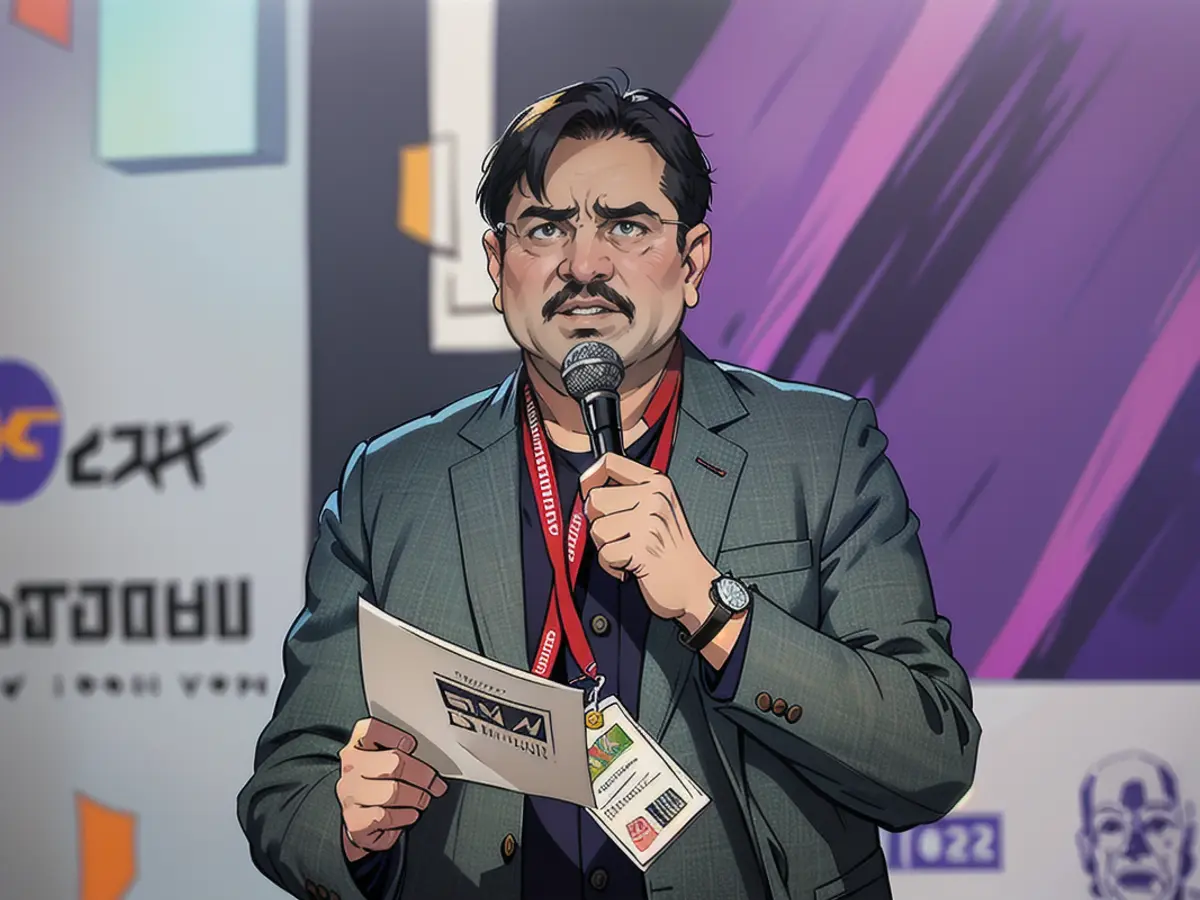
Foreign journalists
Foreign correspondents are also facing challenges. The Australian Broadcasting Corporation's South Asia bureau chief, Avani Dias, left the country in April due to the denial of her visa extension, with the government denying any involvement.
Dias said that the government told her that her visa would not be renewed as her reporting had "crossed a line," though the government has denied this. The government approved a visa extension for her on April 18, but she left on April 20.
Dougnac, the regional correspondent for four French publications, relocated to France in February. In January, she said she received a notice from the Ministry of Home Affairs accusing her of "malicious" and "critically biased" reporting. She applied for a journalistic permit, as mandatory for OCIs since 2022, but her request was rejected without explanation.
India's Home Ministry did not respond to CNN's request for comment regarding Dougnac's case.
In February 2021, the Indian offices of the BBC were raided by tax officials following the broadcast of a documentary excessively critical of Modi. The documentary, dubbed "anti-India garbage" by a senior advisor to the Ministry of Information and Broadcasting, was subsequently taken down from social media platforms.
BJP spokesperson Gaurav Bhatia mentioned to reporters immediately following the BBC raids that companies, including media organizations, should "follow and respect Indian law." The BBC divided its India operations into different legal entities in an attempt to comply with Indian foreign investment regulations.
Dougnac stated that she was not surprised by the actions against international media.
"It began with local journalists and gradually, foreign correspondents came to the realization that they were next," she told CNN.
"That's what's happening now."
Although observing the events unfolding around him, Kappan instinctively maintains his trust in journalism within India. He views championing it as a "moral compulsion."
"The search for the truth is always crucial to me, regardless of personal risks," he emphasized. [
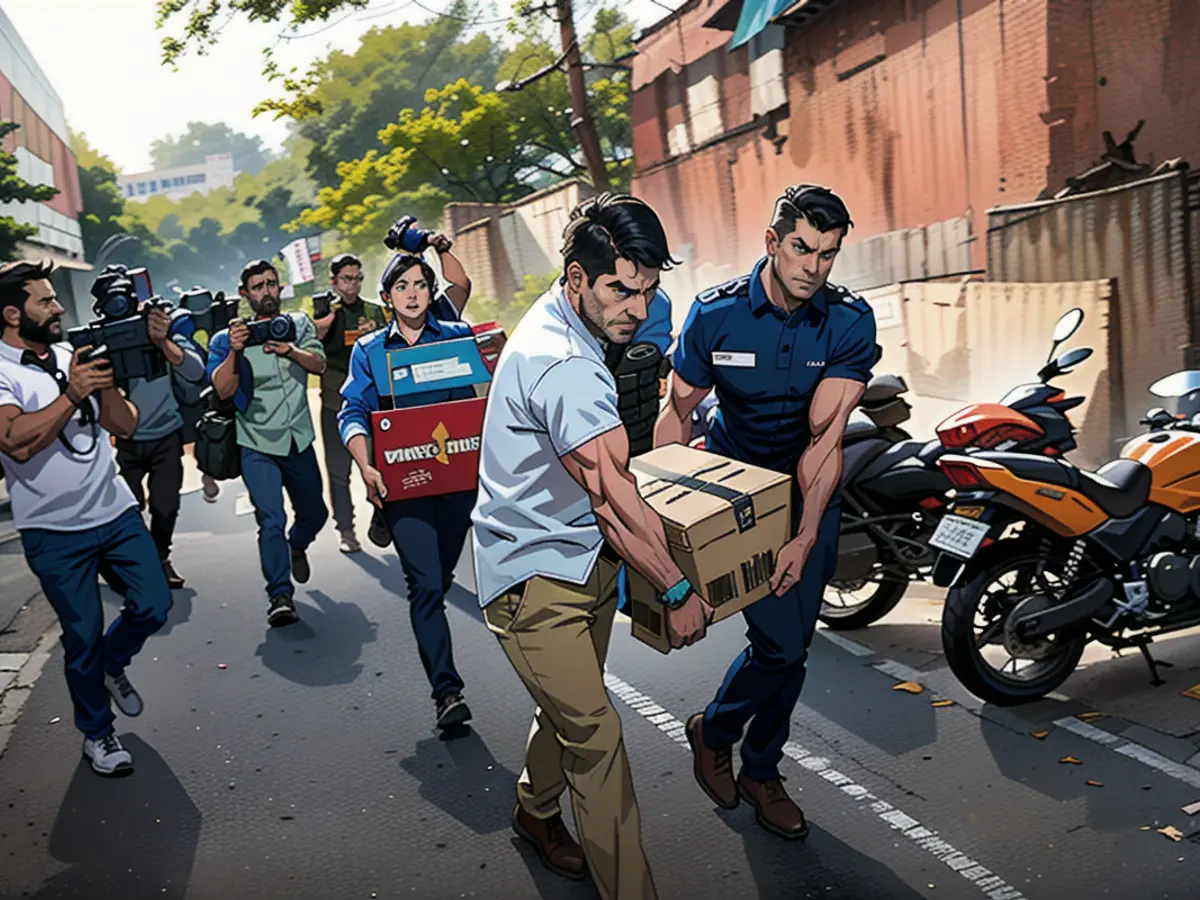
Read also:
- This will change in December
- Dikes withstand water masses so far - Scholz holds out the prospect of help
- Fireworks and parties ring in 2024 - turn of the year overshadowed by conflicts
- Attacks on ships in the Red Sea: shipping companies avoid important trade route
Source: edition.cnn.com
